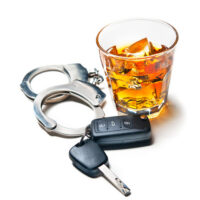A Brief History Of DUI Laws

Older people can remember a time when DUI wasn’t even a crime. However, states had legislation going as far back as 1910. In most cases, it was very difficult to convict an individual of the crime of DUI. Most people didn’t respect the laws and why they were in place.
In the 1930s, you get the first DUI screening equipment called the drunkometer. The AMA and various medical experts set the minimum BAC at .15. Even after the breathalyzer was invented in 1953, drunk driving laws were only sparsely enforced. Those who faced charges would often demand a jury trial, and were able to raise reasonable doubt without much effort. Prosecutors avoided filing charges until there was some established way to determine if a person was inebriated.
Today, we have a maximum standard of .08. As more and more Americans died in drunk driving accidents, medical experts recommended lowering the legal limit and prosecuting intoxicated driving more aggressively. It was until the 1970s that you get modern DUI laws.
Per se drunk driving in the 1970s
Authorities sought to make the prosecution of DUI easier as it was too easy to defend and juries would often nullify the prosecution’s case if there was any doubt whatsoever. Per se rules made it possible for prosecutors to convict a defendant without also proving that they were driving their vehicle recklessly. Prior to this, reckless driving was often an element of a DUI prosecution. Now, prosecutors only had to establish that your BAC was over the legal limit. Today, all 50 states have per se laws. As of the Clinton Administration, the maximum BAC for a driver is .08.
The role of technology in drunk driving
The drunkometer and the breathalyzer were the first real efforts to determine if an individual was drunk according to an established standard. Medical officials set a standard of .15 and gradually lowered it throughout the years. However, there is still concern that breathalyzers have a range of error, meaning that it can be difficult for prosecutors to charge someone with DUI if their BAC is .08 or close. Other states have passed laws that charge defendants with criminal conduct that is less than DUI, but more than a traffic violation. These are known as impaired driving laws. In these states, a BAC between .04 and .06 is still actionable, but not as serious as a DUI.
Logistically, such a law would only be applied when the driver had been in an accident, violated a rule of traffic, and the breathalyzer doesn’t say they’re .08 or higher. The rules allow police officers to take a bad driver off the road even if they are not over the legal limit. Florida has no such laws.
Talk to an Orlando DUI Attorney Today
FL DUI Group represents the interests of Orlando residents charged with DUI-related offenses. Call our Florida DUI defense lawyers today to schedule an appointment and we can begin preparing your defense immediately.
